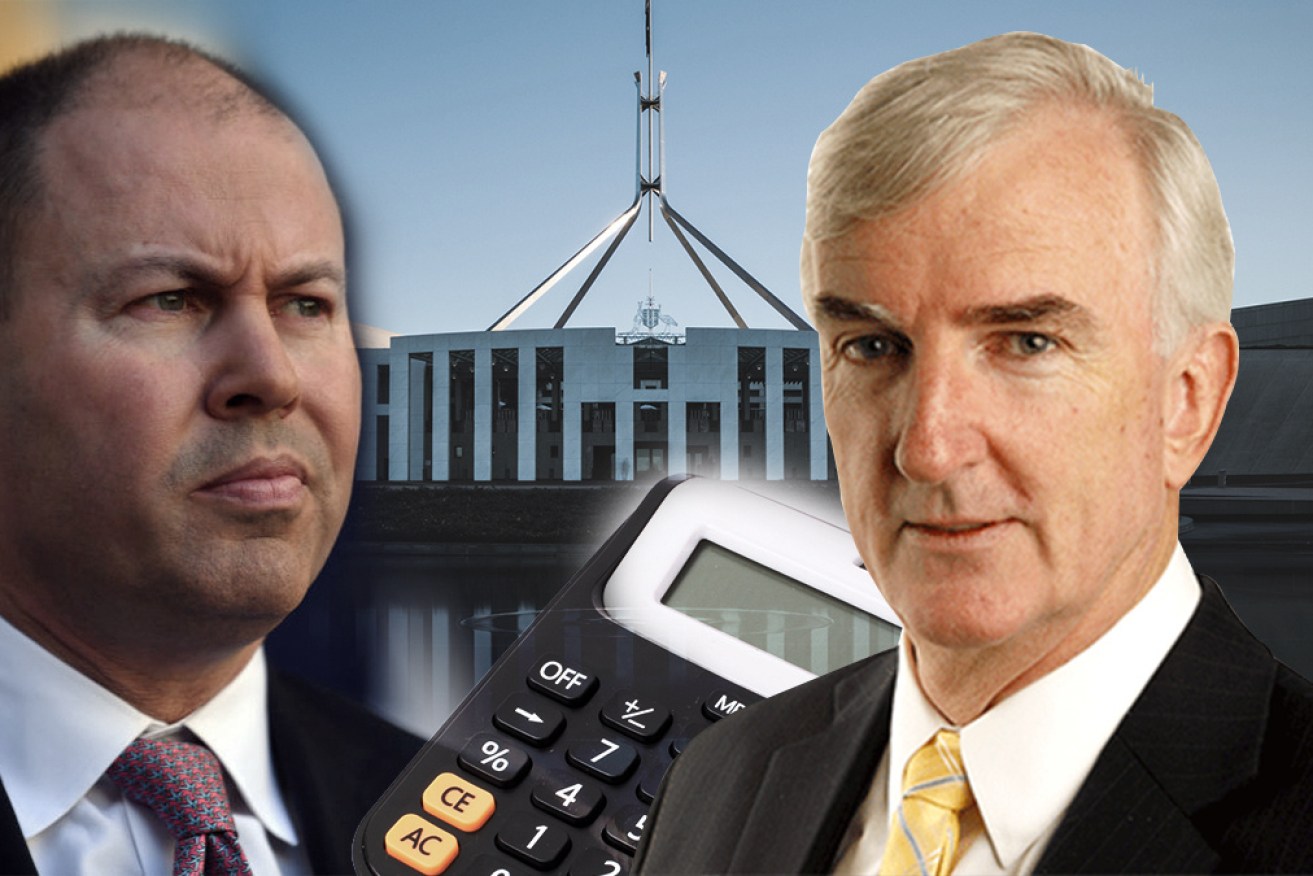Michael Pascoe: A $60 billion ‘oops’ should’ve been a very happy accident


The government must not let the spare $60 billion from JobKeeper go to waste, Michael Pascoe writes. Photo: Getty
An email story this week: “I found a $20 note on the street. I asked myself ‘what would Jesus do?’ – so I turned it into wine.”
As far as stories go, it is not nearly as good as the one about the federal government finding $60 billion lying around the Tax Office, but the same question applies: What would Jesus do?
Or maybe, what would John Maynard Keynes do?
I suspect both the Divinity and economist would answer: use it for good works.
Even in a year of the unthinkable happening, nobody could imagine the best financial news the government would receive is that business types have trouble filling out ATO forms, resulting in the spare $60 billion.
Having budgeted $130 billion for the JobKeeper scheme, having accepted that the debt incurred is in fact quite manageable, the golden opportunity for the government now is to put that $60 billion windfall to work plugging its most obvious policy hole: the lack of any meaningful employment creation stimulus as JobKeeper and the extra JobSeeker payments are withdrawn.
The desiccated hearts of the most dryly doctrinaire government members, the sort of people who want JobKeeper stopped early, will no doubt claim the $60 billion is money the government will no longer need to borrow, that it can be ‘saved’.
Bollocks.
The sort of folk who think a lengthy spell of unemployment makes workers keener, cheaper and more pliant still haven’t realised the GFC era “debt crisis” chanting was purely political self-interest, not in the nation’s best interest.
The IPA types who think reducing high unemployment can be left to untrammelled market forces, that all government needs to do is cut corporate taxes, red tape and workers’ rights, don’t comprehend the pain such a policy would inflict on the Australian economy at all levels.
Alas, Treasurer Frydenberg’s first instinct reportedly lies with the “don’t spend it” brigade.
Increasingly, he looks like a man who simply isn’t up to the job.
Even assuming relatively good health news, the economy’s biggest challenge as surviving businesses reopen will be reduced demand from a significantly smaller workforce and scarred consumers.
Remember that consumption was weak going into the ‘Rona Recession. It will be substantially weaker again with wage freezes and reductions as well as fewer wage packets.
Until demand improves and reduces excess capacity, there’s precious little need for business to invest, especially while its dealing with increased debt incurred during the closedown.
And then there are those businesses that won’t be returning.
Discovering a spare $60 billion on Friday was particularly fortuitous as the Treasury Secretary had admitted the obvious the day before that ongoing fiscal support would be crucial as “there won’t be any more cuts in interest rates coming down the track”.
Only with reduced unemployment will consumers have the money and the confidence to return to decent consumption growth. Only then can business expect to return to something near health.
So far, the government has barely tried baby steps in the direction of job creation – and some of those steps have been more spin than substance.
For example, on Friday Scott Morrison announced what at first blush looked like a fine $1.8 billion boost to help councils get building on the sort of local roads and community projects that help create employment.
But beyond the headline of “$1 million for every council”, the detail was that most of the money was merely being pulled forward from next year’s local government allocation. Only $500 million was actually fresh, employment-stimulating money.
Similarly, for all the government’s talk of its infrastructure investment helping stimulate the economy, last week Treasurer Frydenberg admitted in his economic statement that there would be no increase in the 10-year $100 billion plan he announced a year ago.
Australia needs much more than pea-and-thimble accounting tricks to pull forward some budget allocations. The best guesses of Treasury and the Reserve Bank is that we will have unacceptably high and damaging unemployment for at least the next two years.
Perhaps understandably, the government has been flat out dealing with the crisis as it has evolved. It seems to have been incapable of handling the immediate problems and planning to head off the next lot.
The extra half billion dollars for local government is a start. The challenge for the government is to quickly find another 120 such ideas to deploy its spare $60 billion.
It is too good an opportunity, too important a chance to waste.
My suspicion is that Coalition politicians remain trapped in their anti-Labor GFC rhetoric, that they fear taking responsibility for big employment programs.
Such programs will include mistakes – the Pink Batts tragedies, a few of the school halls – but leaders with a little vision can see beyond that risk.
As they consider the $60 billion they’ve just picked up, Scott Morrison and Josh Frydenberg have to ask themselves what is more important, getting Australians working again as quickly as possible or the chance they might suffer a little embarrassment over the odd project along the way.
The opening questions might guide them to the right answer: what indeed would Jesus or JM Keynes do?








